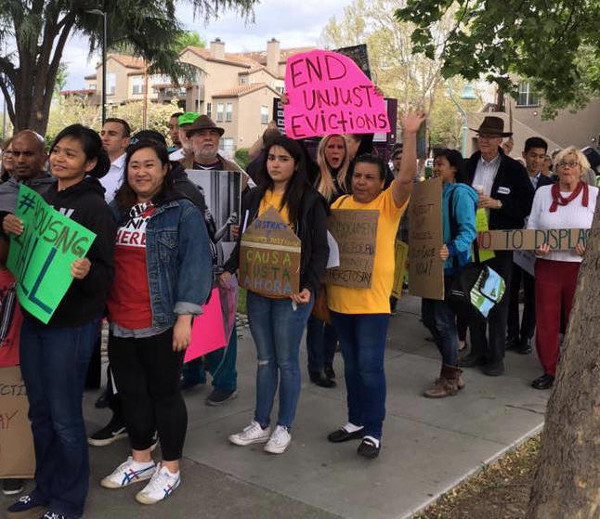
PHOTO/NASSIM NOURI, GREEN PARTY OF SANTA CLARA COUNTY
Political primaries were held in 17 states in June. The results highlighted an increasingly obvious fact: Today, there are two Americas: one is the America of the billionaires and the other is of people struggling to make ends meet. Both Americas are trying to use the electoral arena to defend their interests.
The most dramatic of this was in California. The results there have set the stage for an epic battle over housing.
California has been transformed by the new technology. In the campaign around the June 5 primary, wealthy developers and real estate interests maneuvered to promote their favorite candidates. At the same time, hundreds of thousands of Californians signed petitions to put a measure about rent control on the November ballot. It is a measure to repeal a law which bans most rent control.
On June 5, Lt. Gov. Gavin Newsom, a Democrat, placed first in the balloting for the governor’s race. Newsom received support—and funding—from unions. That support was outweighed by money he received from financial, insurance, and real estate interests.
While claiming to be a progressive, Newsom’s actual record is more problematic. Years ago, Newsom ran successfully for mayor of San Francisco while promoting a homeless-bashing ballot measure. It gutted General Assistance. One of Newsom’s last acts as mayor was to promote another measure which made it a crime to sit or lie on the sidewalk from 11 a.m. to 11 p.m.
Newsom was not the only California candidate heavily supported by real estate interests. London Breed, 43, narrowly won election as mayor of San Francisco on June 5. Her supporters have made much of the fact that she is an African-American woman raised in a housing project. Breed had the support of venture capitalists, developers, landlords and the real estate and tourism interests.
San Francisco, fueled by money from the technology industry, has become unaffordable to all but the very rich. Thousands are homeless. Breed has vowed to remove the encampments of the homeless. “Taking away someone’s civil liberties is not something that I take lightly, but if we want to see a change on our streets we have got to do something different than what we’re doing now,” Breed said in a campaign speech in May at a Jewish community center.
However, at the same time that pro-developer politicians are being promoted by the wealthy, ordinary people are mobilizing. Hundreds of thousands of Californians signed a petition to put a measure on the November ballot that would repeal the Costa-Hawkins Rental Housing Act of 1995. That law severely limits rent control throughout the state.
The campaign to put the repeal measure on the ballot in California shows that as rents go higher and higher, people are standing up and demanding decent, affordable housing. They are using the electoral arena to express their demands for a decent life. As conditions worsen, we can expect to see more of this throughout the country. The repercussions of California’s fight for affordable housing could be felt far and wide!
Chris Mahin is a writer, speaker and teacher on contemporary U.S. politics and history, particularly on the significance of the American Revolutionary War and Civil war eras for today. He is the Electoral Desk on the People’s Tribune Editorial Board.
